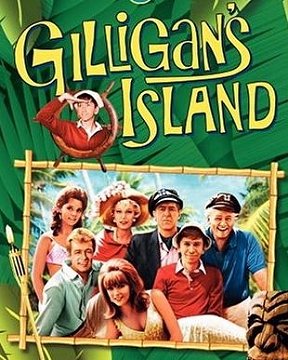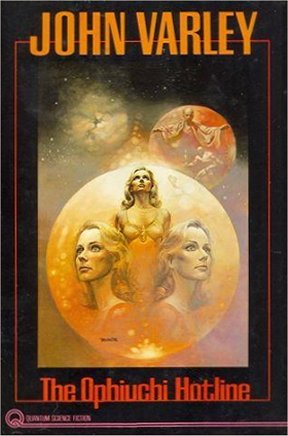

|
Out of Their Heads
|
|
Consciousness transference, sometimes referred to as uploading or downloading, is a theme
that crosses the Fantasy/SF/Horror genre as well as media boundaries. It has been featured
as the central concept in movie comedies (Freaky Friday, 1976, 1995 and 2003! and
All of Me, 1984),
SF television series (Quantum Leap), SF films (Seconds, 1966, and Freejack, 1992), and
fantasy/horror films (Witch's Brew, 1979). There is even a Gilligan's Island episode
("The Friendly Physician") in which a mad scientist causes the castaways to swap bodies.
|

|

NOTE: As always, all books discussed should be assumed hardback first printing in Fine/Fine condition, unless otherwise specified.
A less sophisticated version of transferring consciousness involves transplanting the head or brain. Dr. Robert White, Professor of Neurological Surgery at Case Western Reserve University, performed a nominally successful transplant of a rhesus monkey head to a second rhesus "donor" body in 1970. Of course, given that medical technology still cannot repair severed nerves, even today a patient would come out of such an operation a quadriplegic.
In the same year Robert Heinlein published I Will Fear No Evil (New York: Putnam, 1970; $75+). IWFNE tells the story of the world's richest (and possibly oldest) man who uses his wealth and power to have his brain transplanted to the body of a young, healthy woman. It has been charitably described as the weakest of Heinlein's books and as a story that only a Heinlein fan could love.
An amazingly silly episode of the original Star Trek series has an alien brain-napper stealing Spock's brain, which is subsequently hardwired into the control systems that keep the alien city and culture functioning. Many SF stories involve organic brains incorporated into mechanical systems. Most commonly the brains are used as controls for star ships. Examples include Anne McCaffery's Brainship Series, beginning with The Ship Who Sang (New York: Walker & Co., 1969; one of the author's scarcest books and typically found in ex-lib condition; asking price for F/F HB 1sts approach or top $1000) and continuing with 9 additional novels with various co-authors of variable value but that could do quite well as a lot. See also Larry Niven's A World Out of Time (New York: Holt Rinehart Winston, 1976; little resale value; extremely common in SFBC edition). Another common theme is using the brain to control a battle robot or tank, as in Dean Koontz' first novel Star Quest (Ace Double H-70, published with Emil Petaja's Doom of the Green Planet, New York: Ace, 1968; $15+ depending on condition).
Also worth mentioning in this context is Curt Siodmak's Donovan's Brain (New York: Knopf, 1942; $300+; a basis for three films), in which scientist Patrick Cory performs an illegal experiment by removing the living brain from the dying body of billionaire Warren Donovan. Freed from the distractions of the body and fueled by a megalomaniacal will, Donovan's brain develops the psychic power to communicate with and ultimately control Cory.
A purer form of transferring human consciousness from one body to that of another rests squarely on our concept of mind/body dualism. In other words, is the mind something innately separate (and separable) from the body? Concepts of the soul, ghosts, demonic possession, reincarnation, and astral projection - all are based on a human consciousness that can exist independent of the body. And if the mind has a distinct existence, then it is a short conceptual leap to imagine the ability to transfer consciousness into another vehicle. I deliberately use the word "vehicle" rather than body, as there are many plots in SF and fantasy that imagine human consciousness transferring to animals, computers, aliens, cloned copies of the original body, storage hardware, and artificially constructed biological or mechanical machines.
The means by which this transfer occurs somewhat dictates where the story falls in the genre spectrum. Finding a magic amulet or falling under an evil curse puts the story into fantasy, while use of 25th century medical techniques or alien technology yields a science fiction story. And of course, whether the foundation of the story is fantasy or SF, the plot can be developed as horror.
Many of the issues and questions raised by the idea of consciousness transfer are shared with other SF themes. For example, this theme is intimately tied to cloning in SF; many stories involve the transfer of a recorded mind into a "blank" clone, usually after the death of the original. John Varley has written several short stories and novels set some 500 years into the future, a time when medical science has advanced to the point that physicians are no longer skilled professionals. Most medical procedures are automated, and the medical technologists who run them are more akin to photo lab workers. People periodically have backups made, and in the event of death the most recent backup can be restored into a force-grown clone. Plot lines often involve murder mysteries. In The Ophiuchi Hotline (New York: Dial Press, 1977; signed copies of the trade HB first are available for as little as $30), one story thread involves a restored clone investigating her predecessor's mysterious death while hampered by a lack of memory of events that happened after the latest backup was performed.

Also of interest are the anthologies The Persistence of Vision (New York: Dial Press, 1978; $45 for the trade HB first; watch out for common SFBC editions) and The Barbie Murders (New York: Berkley, 1980; PB original, $10), which include some murder mysteries featuring Detective Anna-Louise Bach.
>>>>>Click here for page two>>>>
Questions or comments?
| Forum
| Store
| Publications
| BookLinks
| BookSearch
| BookTopics
| Archives
| Advertise
| AboutUs
| ContactUs
| Search Site
| Site Map
| Google Site Map
Store - Specials
| BookHunt
| BookShelf
| Gold Edition & BookThink's Quarterly Market Report
| DomainsForSale
| BookThinker newsletter - free
Copyright 2003-2011 by BookThink LLC
Contact the editor, Craig Stark
editor@bookthink.com
